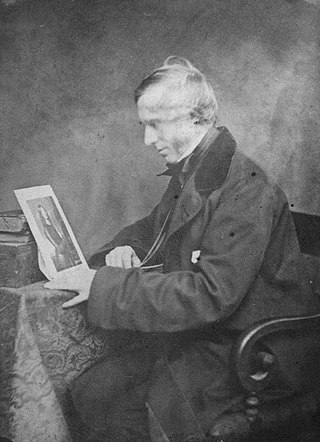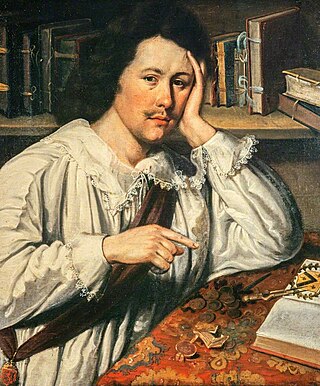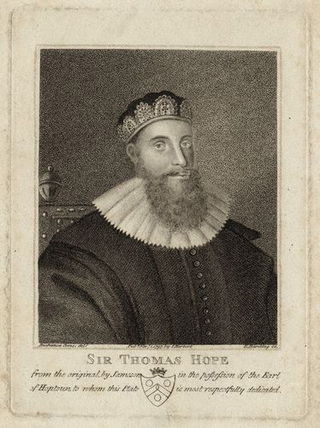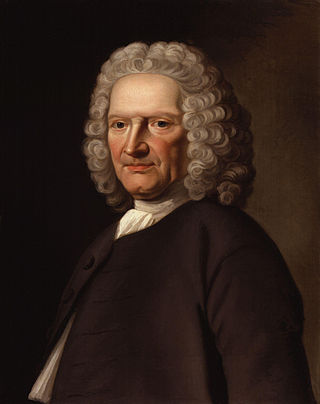
John Jamieson DD was a Scottish minister of religion, lexicographer, philologist and antiquary. His most important work is the Etymological Dictionary of the Scottish Language.

Mark Napier was a Scottish lawyer, biographer and historical author. He was called to the Bar, practised as an advocate, and was made Sheriff of Dumfries and Galloway. Napier wrote from a strongly Cavalier and Jacobite standpoint. He published Memoirs of the Napiers, of Montrose, and of Graham of Claverhouse, the last of which gave rise to controversy.
George Leslie, 4th Earl of Rothes was a Scottish nobleman and diplomat.

Sir James Balfour, 1st Baronet of Denmilne and Kinnaid, of Perth and Kinross, Scotland, was a Scottish annalist and antiquary.

Sir Thomas Hope, 1st Baronet Hope of Craighall (1573–1646) was a Scottish lawyer, and Lord Advocate under Charles I.
Alexander Arbuthnot (1538–1583) was a Scottish ecclesiastic poet, "an eminent divine, and zealous promoter of the Protestant Reformation in Scotland". He was Moderator of the General Assembly of the Church of Scotland in both 1573 and 1577.

Sir James Balfour Paul was the Lord Lyon King of Arms, the officer responsible for heraldry in Scotland, from 1890 until the end of 1926.
Sir James Dalrymple, 1st Baronet was a Scottish writer who served as the Principal Clerk of Session. He was the son of the jurist James Dalrymple, 1st Viscount Stair (1619–1695). He is known as contributing to the debate over the Union between England and Scotland with his Collections Concerning the Scottish History (1705)
Sir Robert Douglas of Glenbervie, 6th Baronet was a notable genealogist responsible for one of the major works on Scottish families, The Baronage of Scotland.
Alexander de Forbes, 1st Lord Forbes, also feudal baron of Forbes, was a Scottish nobleman.

The Scots Peerage is a nine-volume book series of the Scottish nobility compiled and edited by Sir James Balfour Paul, published in Edinburgh from 1904 to 1914. The full title is The Scots Peerage: Founded on Wood's Edition of Sir Robert Douglas's Peerage of Scotland, containing an Historical and Genealogical Account of the Nobility of that Kingdom.
Andrew Crichton (1790–1855) was a Scottish biographer and historian.
John Small was librarian of Edinburgh University Library. He was a member of the Smalls of Dirnanean.
John Stuart LLD (1813–1877) was a Scottish genealogist.
Sir Adam de Gordon, Lord of Gordon was a 14th-century Scottish baron.
John Nickolls (1710?–1745) was an English collector and antiquary.

John Ward (1679?–1758) was an English teacher, supporter of learned societies, and biographer, remembered for his work on the Gresham College professors, of which he was one.
Gilbert James French (1804–1866), was a textile manufacturer and the biographer of Samuel Crompton.
John Bruce (1802–1869) was an English antiquary, closely associated with the Camden Society.
James Glassford was a Scottish legal writer and traveller.







